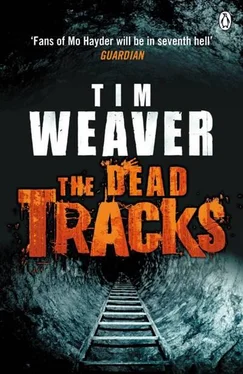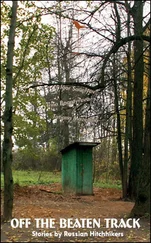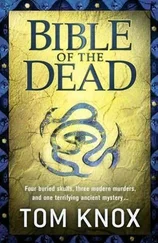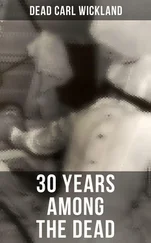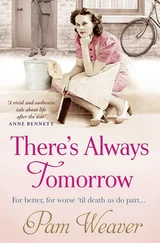Healy pulled up a little way down the street. I got out, turning the collar up on my jacket, and studied the road. If Markham was asking Drayton to drop the box off on the front steps, then he was confident enough about getting to the package before any passers-by took an interest. That meant that when Drayton — or the people who worked for him - turned up at the house, Markham had to be watching. I looked across the street to the houses opposite. They were buildings without life. The whole road had a depressed air about it, a lack of internal light. It was obvious why Markham had chosen this street.
'What a shitheap,' Healy said as he passed me, studying the dark front window of the house. In his hands was a torch he'd got from the back of the car. He made his way up the driveway, the concrete beneath his feet crumbling, and looked in through a hole in the glass. A few seconds later, he flicked the torch on and directed it inside. In the cone of light, I could see blackened walls, a fireplace and — at the back - patio doors.
'You know how long this has been unoccupied?' He shone the torch at the council notice on the front door, then directed the light back into the living room. 'Three years. No wonder it smells like someone shat themselves to death in there. Half the tramps in London have probably used it as a bed and breakfast.'
I followed Healy, checking the houses opposite. The windows across the street would be the obvious place to watch the delivery being made: high position, clear view, good cover. If he used either of the places that flanked number twenty-nine, he'd have to be more careful, but he'd have an even better view of the drop-off. Neither seemed likely, though: in the one to the right, through a pair of net curtains, I could see an old couple sitting in front of their TV; in the house on the left, children's toys were on the windowsill and behind the closed curtains a light was on.
Healy looked at me. 'Better hold your breath.'
Along the edge of the door frame the council had once run luminous yellow tape in an attempt to keep people out. He tore some of it away, stepped back from the door and kicked it open. It juddered and shifted, then swung back into the darkness.
The hallway was small and narrow, and as black as the outside of the house. As we stood and looked in, rain swept in from behind us. It ran down the blistered, seared walls and formed puddles in the glass that lay, sparkling in the torchlight, at the entrance.
The smell hit us about three feet inside. The thick stench of fire. The stink of urine, sweat, alcohol and vomit. Healy shone a torch into the living room. Two men were lying on the floor under blankets, one facing us, one facing away. They were both drunk. He whistled at them. The one facing us opened his eyes; the other didn't even move. He looked vaguely in our direction, unable to focus, then his pupils rolled back in his head. A second later, he was still again.
There were patches of carpet on the floor beneath them, but mostly it was exposed floorboards and - in some places - black holes where the fire had eaten its way through. Beyond the men, tucked away on the other side of the room, was the staircase. The steps were destroyed, and more council tape had been placed across the entrance to them. Close to the staircase was a fireplace, and beyond that was the kitchen.
Both men on the floor stirred, one mumbling, one making a sound like he was suffering his last, dying breath. Between them were a succession of empty cans and bottles. One of them had wet himself.
'Bloody hell,' Healy said quietly. 'It's like St Patrick's Day in here.'
We moved back across the living room. Healy headed straight for exit, but I stopped to look up the stairs. I could see some of the landing: walls were burned through and full of cracks, and holes came right the way through the ceiling into the living room.
The torch swung back in my direction. 'You coming or what?'
I ignored Healy and moved towards the fireplace.
'Give me the light,' I said.
He held out the torch. I glanced at him, not moving, waiting for him to bring it to me. Finally, he shook his head and moved across the glass shards and broken wood, to the fireplace. He slapped it into my hand.
'You after a new fire?'
I ignored him for a second time and used the torch to light it up. It was a standard gas fire: fake lumps of coal sitting in a tray, inside a once-smart silver surround. It wasn't plumb to the wall. A half-inch gap ran all the way around, and when I directed the light in behind, it looked like it was just an empty space. No fire interior. No wall cavity. No insulation. Just space.
'Give me a hand,' I said, and Healy went to the other side of the fire. We both fed our fingers into the gap and pulled the silver surround away from the wall. It stuck at first, making a dull scratching noise as we dragged it. Then it popped free, the coal tray coming with it.
I picked up the torch again.
There was a hole in the wall about three feet high and four feet long. I shone the light into it. Through the hole, the bricks, insulation and wall cavity had all been knocked through.
On the other side was the house next door.
Chapter Fifty-five
I got down on to my hands and knees and crawled through the space, through plaster and dust, glass and chunks of brick. Healy followed.
On the other side, the layout was exactly the same as number twenty-nine. It was sparsely furnished: a tall lamp across from us, currently on and plugged into a timer; a worn sofa; a brand-new TV in the corner on a cabinet, with a DVD player and a very old VCR; VHS tapes underneath that. The kitchen had cutlery on the worktops and food packets half open. The stairs were uncarpeted.
By the front windows were two mannequins. Both were naked, though an arm was missing from one — and something was hanging off its face. It looked like a sheet of thin plastic, part of it glued to the side of the mannequin's head.
I stepped closer and touched a finger to the plastic.
But it wasn't plastic.
It was latex.
One side of it was smooth and creamy, almost polished. The other side had more colour and texture. I pulled it across the face of the mannequin and Healy came around behind me, looking over my shoulder.
'What the hell is that?'
I smoothed it down, over the ridges of the mannequin's head. 'It's a face.'
We stepped back, children's toys scattered along the windowsill behind us, teddy bears and plastic animals poking out between the curtains. Everything was here to create silhouettes. To make people outside think normality existed on the inside.
But it didn't.
In front of us the mannequin looked back, its dead gaze peering through the eyeholes in the thin latex mask. Small, pursed lips were visible through the mouth slit. The mask started to slip away again, the glue not strong enough to hold it any more. But not before both of us had realized who was looking back.
Milton Sykes.
I ripped the mask away from the curved plastic dome of the dummy's head. Healy stood beside me, both of us looking down at the latex approximation of Sykes.
It was a skilled piece of work. Not perfect by any means - some of the colouring had run and there was glue and globules of varnish on parts of the skin — but it was good enough to convince. The mask ran from the top of the forehead to either ear and down to just below the chin. Whoever made it had ensured that the forehead was thicker than the rest of the mask to match up with Sykes's most prominent feature. The depth of the latex at the forehead was almost four times as thick as it was on the rest of the face. If anyone had managed to get close enough they might have been able to tell that something was off. But through the glitchy, staccato black-and-white of the CCTV camera in Tiko's, it had looked perfectly lifelike.
Читать дальше
